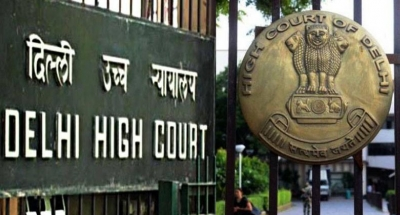New Delhi, Jan 24 (IANS) The Delhi High Court on Friday disposed of a plea filed by several BJP legislators seeking a direction to the Delhi Legislative Assembly Speaker to call for a special sitting for the tabling of the CAG reports.
A bench of Justice Sachin Datta declined to accept the prayer to issue a direction to the Speaker for summoning a special session of the Legislative Assembly.
It said, “The power to reconvene sitting/s of the Legislative Assembly after it has been adjourned sine die without prorogation, is the sole prerogative of the Speaker of the Assembly. It is not permissible for this Court (Delhi HC) to issue directions with regard thereto.” However, the Justice Datta-led Bench directed that once the Legislative Assembly is constituted and summoned pursuant to upcoming elections, requisite steps will be taken by the Delhi government for laying the CAG Reports, as expeditiously as possible.
It said, “The term of the current Legislative Assembly is about to expire and elections for the purpose of electing the next Legislative Assembly, are barely a few days away. In such a situation, it would be impracticable to hold a special sitting of the Assembly. This is also on account of the fact that once the CAG reports are tabled in the House, they have to be examined and scrutinised by the PAC, as contemplated under Rule 192 of the Rules of Procedure. Given that the Legislative Assembly is at the fag end of its current term, the examination and scrutiny by the PAC will now take place only after the newly elected Assembly (pursuant to the upcoming elections) is re-convened.”
In its judgment, the Delhi High Court reprimanded the city government over “remiss in forwarding the CAG Reports to the Lieutenant Governor as mandated under Article 151(2) of the Constitution of India”.
“It is quite evident that there has been an inordinate delay on the part of the Government of NCT of Delhi in taking requisite steps for laying the CAG Reports before the Legislative Assembly. The sequence of events and the timelines reveal a disdainful disregard by the Government of NCT of Delhi of its constitutional obligation,” added the Delhi HC.
The much-delayed CAG reports purportedly talk about the alleged lapses of the city government related to the now-withdrawn excise policy, anti-pollution drive and other matters of state finances that may cause embarrassment to the AAP-led government just before the Assembly polls.
Earlier on December 24 last year, a bench of Justice Sanjeev Narula had issued notice in the matter and asked the Delhi government, Assembly Speaker and other respondents to file their reply by January 9. Justice Narula-led Bench also took note of the submission that Chief Minister Atishi, who also holds the portfolio of Finance Minister, has forwarded to the Speaker the CAG reports approved by the Lt. Governor (L-G).
The latest plea filed by BJP MLAs Vijender Gupta, Mohan Singh Bisht, Om Prakash Sharma, Ajay Kumar Mahawar, Abhay Verma, Anil Bajpai and Jitender Mahajan said that a special sitting of the Delhi Legislative Assembly was not called by the Speaker despite a statement made before the Delhi High Court in an earlier round of litigation.
“This is a clear violation of the statement/undertaking given by the Senior Counsel on behalf of the GNCTD before this Hon’ble Court for which the petitioners reserve their rights to move contempt of court if advised,” it said.
Earlier on December 16, the Delhi HC disposed of BJP legislators’ plea seeking direction to the city government to forward CAG reports to the Lt. Governor (L-G) after it was told that L-G Vinai Kumar Saxena has approved the 14 CAG reports forwarded by Chief Minister Atishi.
It noted that CM Atishi, who also holds the portfolio of Finance Minister, will forward within 2-3 days these approved reports to the Speaker of the Delhi Legislative Assembly, who in turn, will promptly take a call on holding a special session for laying down the CAG reports. The petition had said that the CAG is a “constitutional watchdog” created with the objective of providing independent and credible assurance to the public, the legislature and the executive that the public funds are being collected and used effectively and efficiently.
–IANS
pds/uk


























